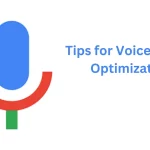Artificial Intelligence (AI) is the simulation of human intelligence in machines that are programmed to think, learn, and perform tasks typically requiring human intelligence. AI involves the development of computer systems capable of performing tasks that would normally require human intelligence, such as visual perception, speech recognition, decision-making, and language translation. In this context, we talked about the impact of artificial intelligence on digital marketing.
Let’s jump into the deep:
AI systems are designed to analyze large amounts of data, recognize patterns, and make decisions based on that analysis. These systems can be trained to perform specific tasks by processing large datasets and adjusting their algorithms accordingly.
AI Applications on Digital Marketing
Artificial Intelligence (AI) has a significant impact on various aspects of digital marketing, enhancing efficiency, personalization, and effectiveness. Here are some key applications of AI in digital marketing:
Personalized Content Recommendations:
AI-powered algorithms analyze user behavior and preferences to deliver personalized content recommendations. This could include personalized product recommendations on e-commerce websites, content recommendations on blogs or news websites, or personalized email campaigns.
Predictive Analytics:
AI can analyze large datasets to predict future trends, customer behavior, and market dynamics. Marketers can use predictive analytics to anticipate customer needs, optimize marketing campaigns, and allocate resources more effectively.
Chatbots and Virtual Assistants:
AI-powered chatbots and virtual assistants can provide instant customer support, answer queries, and assist users with their purchasing decisions. These AI-driven conversational interfaces can improve customer engagement and streamline the sales process.
Natural Language Processing (NLP):
NLP enables AI systems to understand and interpret human language. Marketers can leverage NLP for sentiment analysis, social media monitoring, and understanding customer feedback. NLP-powered tools can analyze customer reviews, social media conversations, and other textual data to gain insights into customer sentiment and preferences.
Predictive Lead Scoring:
AI algorithms can analyze lead data to predict the likelihood of conversion. By scoring leads based on various factors such as demographics, behavior, and engagement, marketers can prioritize high-value leads and tailor their marketing strategies accordingly.
Dynamic Pricing Optimization:
AI algorithms can analyze market dynamics, competitor pricing, and customer behavior to optimize pricing strategies in real-time. Dynamic pricing algorithms can adjust prices based on factors such as demand, seasonality, and competitor pricing, maximizing revenue and profitability.
Content Generation and Optimization:
AI-powered tools can generate content, such as product descriptions, blog posts, and social media updates, based on user input and preferences. Additionally, AI can optimize content for search engines by analyzing keywords, trends, and user intent, improving organic search visibility and driving traffic to websites.
Ad Targeting and Optimization:
AI algorithms can analyze user data to target ads more effectively and optimize ad campaigns for better performance. AI-powered advertising platforms use machine learning to identify high-value audiences, adjust bidding strategies, and optimize ad creatives in real-time, maximizing ROI.
These are just a few examples of how AI is transforming digital marketing. As AI technologies continue to advance, marketers will have access to increasingly powerful tools and capabilities to drive growth, enhance customer experiences, and achieve their marketing objectives.
The Impact of Artificial Intelligence on Digital Marketing
The impact of Artificial Intelligence (AI) on digital marketing is profound, revolutionizing how marketers analyze data, target audiences, personalize content, and optimize campaigns. Here are some key ways AI is shaping the landscape of digital marketing:
Data Analysis and Insights:
AI enables marketers to analyze vast amounts of data quickly and efficiently. This includes customer demographics, behavior patterns, interactions, and engagement metrics across various channels.
AI algorithms can uncover actionable insights from data, identifying trends, correlations, and opportunities that may not be immediately apparent to human analysts.
Predictive analytics powered by AI can forecast future trends, customer behavior, and market dynamics, helping marketers make informed decisions and strategies.
Audience Targeting and Personalization:
AI allows for precise audience targeting by analyzing user data and behavior. Marketers can create highly segmented and personalized campaigns tailored to specific demographics, interests, and preferences.
Personalization powered by AI enhances the customer experience by delivering relevant content, recommendations, and offers at the right time and through the preferred channels.
Dynamic content optimization tools use AI to customize website content, email campaigns, and ads based on individual user interactions, maximizing engagement and conversions.
Automation and Efficiency:
AI-powered automation streamlines repetitive tasks and processes, freeing up marketers’ time to focus on strategic activities and creativity.
Chatbots and virtual assistants driven by AI provide instant customer support, answer queries, and guide users through the sales funnel, improving efficiency and scalability.
Marketing automation platforms use AI to automate email marketing, social media posting, ad management, and lead nurturing, optimizing campaign performance and ROI.
Content Creation and Optimization:
AI tools generate content such as product descriptions, blog posts, and social media updates based on user input, preferences, and data insights.
Natural Language Processing (NLP) enables AI to analyze and optimize content for search engines, improving organic search visibility and driving traffic to websites.
AI-powered content recommendation engines deliver personalized content to users, increasing engagement and retention on digital platforms.
Ad Targeting and Optimization:
AI algorithms analyze user data to target ads more effectively, identifying high-value audiences and optimizing ad placements, bids, and creatives.
Programmatic advertising platforms leverage AI to automate ad buying and selling, enabling real-time bidding and optimization for better campaign performance and ROI.
AI-driven attribution models measure the impact of marketing activities across channels, helping marketers allocate budgets effectively and optimize conversion paths.
Also Read


How to Use AI Efficiently for Digital Marketing
Using AI efficiently for digital marketing involves strategic planning, implementation, and ongoing optimization. Here are some steps to leverage AI effectively in your digital marketing efforts:
Define Clear Objectives:
Identify your marketing goals and objectives, whether it’s increasing brand awareness, driving website traffic, generating leads, or improving conversion rates. Determine how AI can help you achieve these objectives more efficiently and effectively.
Identify Relevant AI Solutions:
Research and evaluate AI-powered tools and platforms that align with your marketing goals and target audience. Consider factors such as functionality, ease of integration, scalability, and cost-effectiveness. Common AI applications in digital marketing include data analytics, personalization, automation, and optimization.
Data Collection and Integration:
Ensure you have access to high-quality data from various sources, including customer interactions, website analytics, CRM systems, and social media platforms. Clean and integrate data to create a unified view of your audience and their behavior across channels.
Implement AI-Driven Analytics:
Use AI-powered analytics tools to analyze large datasets and uncover actionable insights. Identify trends, patterns, and opportunities that can inform your marketing strategies and decision-making process. Leverage predictive analytics to forecast future trends, customer behavior, and market dynamics.
Personalization and Targeting:
Leverage AI to personalize content, recommendations, and experiences for your audience. Segment your audience based on demographics, behavior, interests, and preferences, and deliver targeted messaging across channels. Use dynamic content optimization tools to customize website content, email campaigns, and ads in real-time.
Automation of Routine Tasks:
Automate repetitive tasks and processes using AI-driven automation tools. This includes email marketing, social media posting, ad management, lead nurturing, and customer support. Free up your team’s time to focus on strategic activities, creativity, and relationship-building with customers.
Optimization and Testing:
Continuously monitor and optimize your AI-driven marketing campaigns for better performance and ROI. Use A/B testing and multivariate testing to experiment with different variables, such as ad creatives, messaging, targeting criteria, and timing. Analyze the results and iterate on your strategies based on data-driven insights.
Stay Updated and Adapt:
Stay informed about the latest trends, advancements, and best practices in AI and digital marketing. Keep an eye on emerging technologies and opportunities that can further enhance your marketing efforts. Be agile and adaptive in your approach, adjusting your strategies as needed to stay competitive in a rapidly evolving digital landscape.
By following these steps and leveraging AI efficiently, you can enhance the effectiveness, efficiency, and scalability of your digital marketing initiatives, driving better results and staying ahead of the competition.
End Words
AI is reshaping digital marketing by enabling data-driven decision-making, hyper-targeted campaigns, personalized experiences, and streamlined processes. As AI technologies continue to advance, marketers will have access to increasingly sophisticated tools and capabilities to drive growth, enhance customer relationships, and stay ahead in a rapidly evolving digital landscape.

